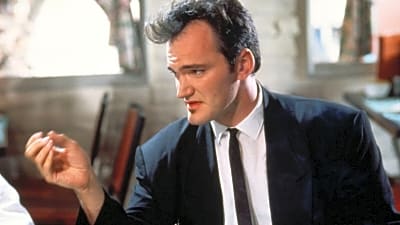
Tennis can look glamorous from the outside: the trophies, the travel, the adrenaline of match point. Yet behind the backhands and post-match smiles, there is often a storm brewing. For Russia-born Australian tennis star Daria Kasatkina, that storm has finally hit.
The world number 19 shocked fans this week when she announced she’s ending her 2025 season early, citing exhaustion and mental strain. "Truth is, I’ve hit a wall and can’t continue," she confessed in an emotional Instagram post. "I need a break. A break from the monotonous daily grind of life on the tour, the suitcases, the results, the pressure, the same faces (sorry, girls), everything that comes with this life.".
Daria's statement
Kasatkina’s words cut through the glossy facade of the tennis world to reveal the fatigue behind it, the sleepless flights, the endless travel, the quiet moments when even winning doesn’t feel like enough. "Mentally and emotionally, I’m at breaking point," she wrote. "The schedule is too much... and sadly, I am not alone." the Australian said.
For a player who has always worn her heart on her sleeve, the admission was raw but not surprising. The 28-year-old, who rose to prominence with her dazzling 2022 French Open semifinal run, has never been one to hide behind polite press conferences or filtered smiles. Her openness about her identity, her struggles, and her convictions has made her one of tennis’s most human and relatable figures.
Nevertheless, her off-court challenges have been as relentless as her opponents. After publicly coming out as gay and speaking out against Russia’s war in Ukraine, Kasatkina has been unable to return home. Now settled in Australia, she’s juggling the emotional strain of being separated from her parents with the bureaucratic stress of securing permanent residency. It’s a lot for anyone, let alone someone living out of a suitcase travelling from week to week.
Kasatkina's China run crashed by Kartal
Kasatkina’s 6-3, 6-0 defeat to Kartal lasted barely over an hour, but the statistics tell a deeper story of struggle. While Kasatkina landed 75% of her first serves, a strong number on paper, she won just 45% of those points, compared to Kartal’s commanding 65%. Her second serve was even more telling: she managed to win only 23% of points behind it, whereas Kartal dominated with 70%.
The return statistics were equally stark. Kasatkina managed to win only 35% of points on Kartal’s first serve and 30% on her second, figures that suggest she struggled to apply any consistent pressure. Kartal’s aggressive returns, by contrast, yielded 55% and 77% success rates respectively, keeping Kasatkina constantly on the defensive.
What the stats do not capture, however, is the visible fatigue in Kasatkina’s body language, the slower movement between points, the muted reactions, and the sense that her mind was elsewhere. This was less a loss of form than a sign of emotional burnout catching up to her game.
Daria's comeback for 2026
Kasatkina’s last title came at the Ningbo Open in October 2024, when she played with the creativity and confidence that defined her peak. Now, a year later, she steps back to recover and reset. Her announcement follows a growing number of players, including Elina Svitolina and Beatriz Haddad Maia, who have chosen early season exits to protect their mental health.
Her decision has been met with widespread support from fans and peers, many of whom see her honesty as a call for change in the sport’s relentless schedule. When she returns in 2026, she will bring with her not just a refreshed game but a renewed sense of self. Daria Kasatkina may have lost to Sonay Kartal, but in stepping away on her own terms, she has found something far more valuable: perspective and rest. As she said in her own words, she will return in 2026 "energized and ready to rock.".
More must-reads:
- Four American women could qualify for WTA Finals for first time in 23 years
- 13-year NHL veteran announces retirement
- The 'Most NFL QB two-rushing-TD games' quiz
Breaking News
Trending News
Customize Your Newsletter
 +
+
Get the latest news and rumors, customized to your favorite sports and teams. Emailed daily. Always free!








